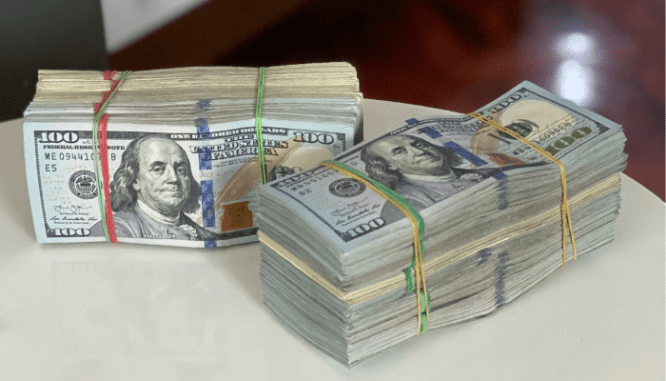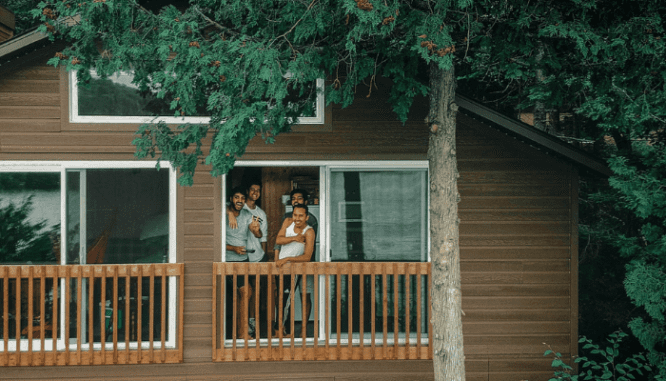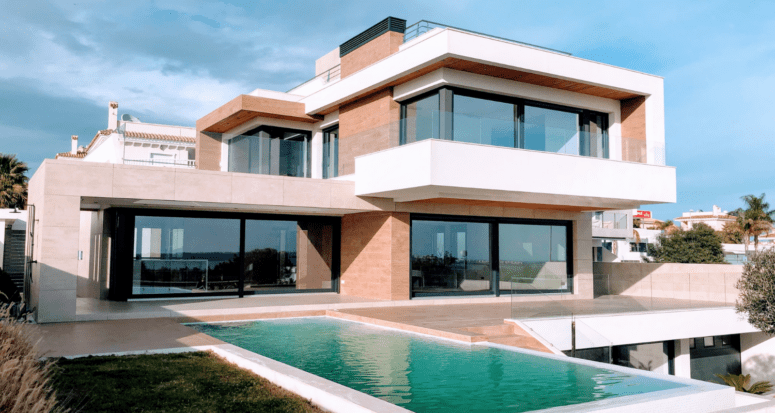Answers to the Common Question, ‘How Much House Should I Buy?’
- Published on
- 5 min read
-
 Evette Zalvino Contributing AuthorClose
Evette Zalvino Contributing AuthorClose Evette Zalvino Contributing Author
Evette Zalvino Contributing AuthorEvette is just your average HGTV fan who dreams of having a home worthy of being on one of those shows. When she isn't writing for HomeLight, she's working at her local real estate office. In her downtime, you'll find her searching for the next great hiking trail in her area.
When you start dreaming about homeownership, your budget might not be the first thing on your mind — it’s a lot more fun to think about what you might do with an extra bedroom than to calculate your monthly mortgage payment. But here’s the thing: If you don’t know how much you can spend on a house, then you won’t know whether you can only afford one extra bedroom … or two. So before you start browsing homes for sale, the first thing you need to determine is “how much house should I buy?”
At the beginning of the homebuying process, it’s strongly recommended that you get preapproved for a mortgage before you even start looking at houses. A preapproval will give you a clear dollar amount regarding your budget, and it’ll also keep you from falling in love with a house that you wouldn’t qualify for otherwise.
Just because you were approved for a certain amount, that doesn’t mean you have to spend that much. On paper, it may look like you can afford the estimated monthly mortgage, but you don’t want to overextend yourself. As a new homebuyer, it’s a really good idea to create a budget that you can comfortably manage without sacrificing too much.
If you’re not sure where to start, we’ve created a list of questions that’ll help map out what your monthly expenses are, how much house you actually need, and other useful considerations.

Finances
Income
The first and foremost thing you need to consider when you ask yourself, “how much house should I buy?” is your income. You’ll need to tally up all of the money that comes into your home. This means your take-home wages, your spouse’s take-home wages (if applicable), any alimony or child support payments, and any other income streams.
For simplicity’s sake, let’s say you bring home $2,000 per month, and your spouse brings home $2,500 per month. Total, your household earns $4,500.
Note: Lenders will look at your gross income when determining your eligibility.
Debt
After you’ve figured out how much money is coming into your house each month, you need to look at how much is going out in the form of debt payments. That’s because lenders look at your DTI, or debt-to-income ratio (i.e. how much you’re obligated to pay in debts each month versus how much money you make), when determining how much they can safely loan you. Mortgage lenders like to see a DTI of 43% or lower.
DTI is calculated by adding up your monthly minimum debt payments and dividing that number by your gross monthly income. Debt payments include things like your minimum monthly payments for student loans, car payments, credit card payments, medical bills, and anything else that’s considered debt.
So, let’s say your gross monthly income is $4,000. Your debts are as follows:
- Student loans: $400/month
- Credit card minimum payments: $80/month
- Car payment: $350/month
Your total monthly debt is $830. That would put your DTI at around 21%. That means your mortgage payment can be no more than $890 per month, which would put you at 43% DTI.
Understand, though, that DTI says nothing of your monthly spending outside of debt payments. DTI doesn’t include monthly expenses like cell phone bills, utilities, groceries, entertainment, or even basic needs like clothing. So that’s something you should also consider while figuring out how much home you can afford.
Savings
The money you have saved shouldn’t just cover your down payment and closing costs. Lenders typically want to know how much money you’ll have left over after the sale is complete, or your cash reserves. Lenders want to know this because they want to have some reassurance that you won’t default on your loan should your financial picture change.
Los Angeles top-selling agent Allison Van Wig, who works with 72% more single-family homes than the average agent in her area, advises clients to look at their rent payment and see how much they can save.
“You want to look at what you’re paying in rent and if you’re saving anything. If your rent is $2,000 and you’re not saving anything, you’re stretching yourself. You certainly don’t want to purchase a home where a mortgage payment is $2,800.”
You can start preparing yourself for the larger monthly payment by putting aside an extra few hundred dollars in the bank each month. Consult a financial advisor if you need some guidance.
Many financial experts recommend saving at least three months’ worth of housing payments in your savings account, but the more you have saved, the safer you’ll be.
Down payment and/or closing assistance
Contrary to popular belief, you do not need 20% for a down payment. Yes, 20% will help to significantly lower your monthly payments, and you won’t need to take out mortgage insurance, but 20% of a house’s price is a lot of money! The Federal Reserve Economic Research report for Q3 2020 shows the median home price was $324,900. You would need $64,980 for a 20% down payment, and that’s not including closing costs or any cash reserves left over.
Fortunately, the typical down payment amount that first-time homebuyers bring to the table is about 7%, according to the National Association of Realtors’ 2020 Profile of Home Buyers and Sellers. Depending on the loan you qualify for, you could put down as little as 0%! Buyers also have the option of using a national down payment assistance program to help.
There are also closing cost assistance programs that will help in that regard, too. Of course, you always have the option of asking the seller to help pay part or all of your closing costs — but in a hot seller’s market, they’re not very likely to agree.
Credit score
Your credit score plays a big role in determining your ability to get a mortgage loan. On average, a first-time homebuyer’s credit score ranges from between 683 to 739. But that doesn’t mean you’re out of luck if your credit score is lower than that.
For example, those with a 580 score can apply for an FHA loan, as long as you have at least 3.5% saved up for a down payment. Those with a 640 score can apply for a USDA loan, and those with a 620 score can apply for a conventional loan (though some lenders may require a higher score).
If your current credit score doesn’t qualify you for a mortgage, Van Wig recommends that buyers call an advisor sooner rather than later. That way, when you’re ready to start shopping for a house, credit won’t stand in your way.
“If you have bad credit, it can take up to a year and a half to fix it. That doesn’t mean you’ll have to pay for a credit repair service, but it does mean that you may have to change how much you are paying toward your debts.”
Mortgage rates
When lenders discuss mortgage rates, they’re referring to the interest that you’ll pay on your home loan.
Suppose you’re approved to buy a house for about $325,000, and you have $65,000 to put down. Your total loan amount will be $260,000, and you will pay interest on this amount. If your mortgage rate is 5%, then you’ll actually pay $502,465 for your home over a 30-year fixed-rate mortgage.
Mortgage rates are set based on a whole slew of economic factors, including the overnight exchange rates set by the Federal Reserve, but the rate you’re offered by a lender will also depend on your financial profile and credit score. A change in rate can make a huge difference in your monthly mortgage payment, and what you’ll pay for your home over time.

Housing considerations
Once you have your finances figured out, this is where you need to be realistic. As much as you’d love to find a forever home with ample space and amenities that you’d never dream of selling, a home like that may be outside of your price range — for now.
Use these questions to figure out how much house you’d realistically need right now. You’ll want to jot your answers down on a piece of paper so you can refer back to them.
How long will you be living in the house?
Ask yourself how long you intend on living in the house. Will you be staying there for a few years? A decade? Forever?
If you’re going to live there for a long time, maybe you’ll want a house you could grow into. If it’s just going to be for a couple of years, perhaps you could make do with something a little smaller until you’re ready to upgrade to a larger house.
How many bedrooms and bathrooms do you need?
The number of bedrooms and bathrooms the house has is going to play a big role in how much the house will cost.
If it’s just you, and you don’t plan on having kids any time soon, maybe you could stick with a two-bedroom house that has just one bathroom. You’ll have that extra room to turn into whatever you’d like, and you won’t have to worry about cleaning an extra bathroom! It’s nice to have that extra room just in case but ask yourself if you really need that space.
What are your outdoor requirements?
The features inside the house are important, but you don’t want to overlook the outdoors, either. Ask yourself how important a backyard is to you, and if it is, what features do you want in a yard.
Do you want a large backyard because you have a couple of dogs who love to run around? Do you like to entertain and therefore you want a sizable patio or deck area? If you have a green thumb, do you want a yard with space to create your own garden, or do you want a house with low maintenance landscaping?
What is the local market like?
The market is another big factor that needs to be taken into consideration. Your money may go a lot further in one neighborhood than it would another.
Your desired area may be in a hot seller’s market, which means you may have to reevaluate your budget or what features and amenities you want in a house. Then again, you may be entering a strong buyer’s market, and you may be able to negotiate for a lower price, ask for repairs to be made, or ask for help with closing costs.
If you’re unsure what the market is doing when you’re ready to buy, don’t be afraid to ask your agent!
What will your monthly mortgage include?
When you make that monthly mortgage payment, you aren’t just paying back the loan principal and interest. The mortgage payment will include extra costs like mortgage insurance (if the lender requires it), homeowner’s insurance, property taxes, and HOA fees (if applicable).
These additional costs will change your monthly payment and if you aren’t aware of them, it could be a surprise when you’re approved for a loan.

How much house should I buy?
There are many factors that need to be considered when asking, “How much house should I buy?” There is no clear-cut answer because everyone’s circumstances and needs are going to differ.
For example, some people may have good credit but no down payment, while other people may have come into a large sum of money but they’re having difficulty getting financed because their credit isn’t the greatest.
In terms of financing, financial experts recommend buyers spend no more than 30% of their total income on housing and 43% on their total debt — housing costs included. However, if you are debt-free, you may be able to comfortably afford a higher monthly payment on a larger house.
The size of the house you buy is dependent on your unique situation, and if you’re in doubt, always consult your real estate agent and a financial advisor. They’ll be able to give you advice and insight regarding your budget, including how much you can afford and still live comfortably without worrying about overextending yourself.
Header Image Source: (Ярослав Алексеенко / Unsplash)
